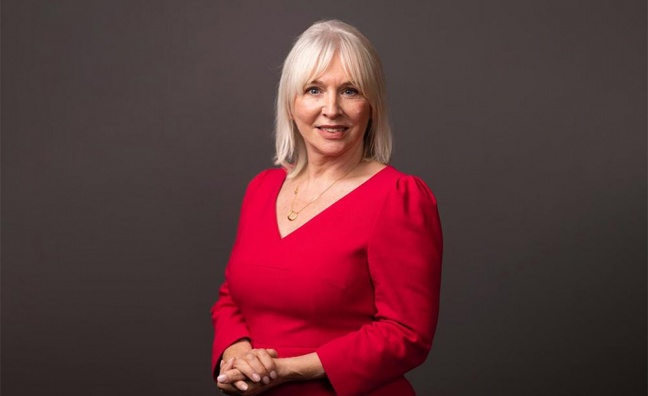Culture Secretary Nadine Dorries has announced that the licence fee will be frozen for two years and will ultimately be replaced by new funding methods.
The government is set to announce that the cost of an annual licence for BBC TV and iPlayer will remain at £159 until 2024, followed by small increases until the end of the current Royal Charter in 2027. It comes after lengthy negotiations between the BBC and the government over a future settlement.
With the freeze on the licence fee, the BBC would have to find savings of around £2 billion over the next six years. The licence fee currently brings in £3.75 billion a year for the corporation.
In the long-term, the licence fee would be likely to be replaced by new funding models that are more in line with subscription streaming services such as Netflix, Amazon Prime and Apple TV+.
The move to scrap the licence fee would have an impact for the music industry, which relies on multiple BBC platforms to support new and existing artists. The BBC has ambitious plans for music radio and live events, which were announced last year.
This licence fee announcement will be the last. The days of the elderly being threatened with prison sentences and bailiffs knocking on doors, are over.
— Nadine Dorries (@NadineDorries) January 16, 2022
Time now to discuss and debate new ways of funding, supporting and selling great British content. https://t.co/sXtK25q27H
A funding model without a compulsory licence fee from 2027 would mean that the broadcaster and government would have to look closely at all services it operates, and then decide whether to charge for access, introduce advertising or remove programming and stations.
Although any changes remain speculation at this stage, that could mean potential sell-offs of radio networks such as Radio 1 and Radio 2 to the commercial sector, in order to bring in revenue and cut costs. The resources required for music festival coverage would also likely come under scrutiny.
There has long been opposition to the BBC funding of Radio 1 in some political circles with calls over the years for privatisation of the youth network. The expansion of BBC Sounds has been questioned by MPs.
Even BBC bosses have attempted to scale back services. BBC Radio 6 Music was set for closure in 2010 until a backlash from listeners forced a change of plan.
The BBC would have to negotiate with the government over the post-2027 plan for a potential subscription offer or partial privatisation. That would depend on the Conservative government being in power at that point and maintaining Dorries’ policy position.
While there has not been an official announcement about the licence fee plans, Nadine Dorries tweeted a Daily Mail article that revealed the government’s plans.
“This licence fee announcement will be the last,” she said. “The days of the elderly being threatened with prison sentences and bailiffs knocking on doors, are over. Time now to discuss and debate new ways of funding, supporting and selling great British content.”









